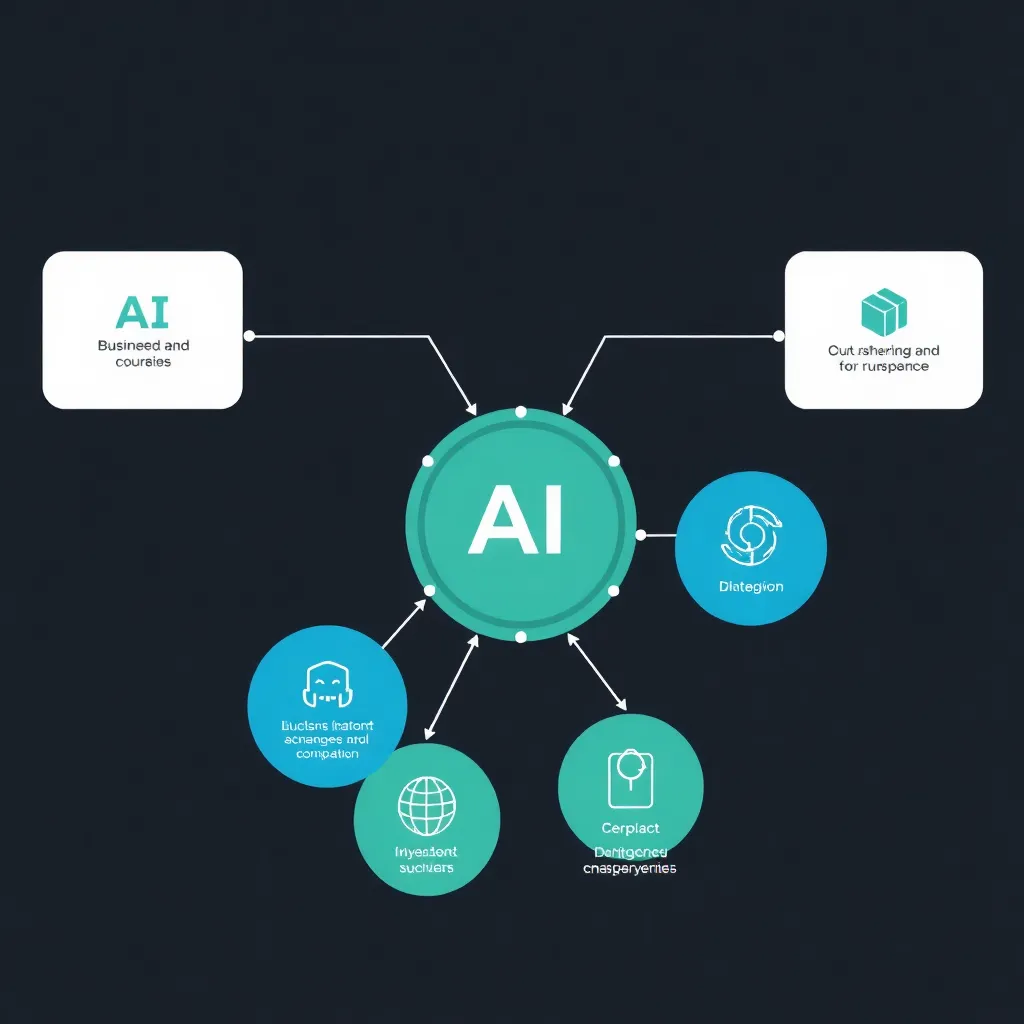In today’s fast-paced business landscape, entrepreneurs need to stay ahead of the curve to succeed. The rapid pace of technological advancements has made it essential for businesses to adapt and innovate continuously. According to a report by Gartner, by 2022, 70% of organizations will be using AI in some form, making it a crucial component of business strategy.
Artificial intelligence (AI) has revolutionized the way businesses operate, and leveraging the right AI tools can give entrepreneurs a competitive edge. AI-powered solutions can automate mundane tasks, provide valuable insights, and enhance customer experiences. By integrating AI into their operations, entrepreneurs can increase efficiency, reduce costs, and make data-driven decisions.
This article explores the top AI business tools that can help entrepreneurs achieve success. From chatbots and virtual assistants to predictive analytics and machine learning platforms, we’ll delve into the most effective AI solutions that can help businesses thrive in today’s competitive market.
Chatbots: Enhancing Customer Experience
Chatbots have revolutionized the way businesses interact with their customers, offering a convenient and efficient means of providing 24/7 support. By leveraging artificial intelligence, chatbots can automate routine tasks, freeing up human customer support agents to focus on more complex and high-value tasks. This not only improves response times but also enables businesses to reduce operational costs associated with staffing and training human representatives.
One of the primary benefits of chatbots is their ability to respond to customer inquiries in real-time. This instant gratification can significantly improve customer satisfaction, as customers no longer have to wait for hours or even days for a response to their queries. According to a study by Forrester, 63% of customers expect companies to offer 24/7 customer support, making chatbots an essential tool for businesses seeking to meet this demand.
Moreover, chatbots can be integrated into various communication channels, including messaging platforms, websites, and mobile apps. This omnichannel approach enables businesses to provide a seamless customer experience, regardless of how customers choose to interact with them. By providing consistent and personalized support across all touchpoints, businesses can build trust and loyalty with their customers, ultimately driving revenue growth and long-term success.

Predictive Analytics: Data-Driven Decision Making
Predictive analytics is a powerful tool that enables entrepreneurs to make data-driven decisions by uncovering patterns and trends within large datasets. By applying AI algorithms to these datasets, predictive analytics can identify potential outcomes and forecast future events with a high degree of accuracy. This allows entrepreneurs to proactively respond to changes in the market, mitigate risks, and capitalize on emerging opportunities.
One of the primary benefits of predictive analytics is its ability to inform strategic decision-making. By analyzing historical data and real-time inputs, entrepreneurs can gain a deeper understanding of their customers, suppliers, and competitors. This insight can be used to optimize operations, streamline processes, and develop targeted marketing campaigns that resonate with their target audience.
Moreover, predictive analytics can help entrepreneurs identify new business opportunities that may not be immediately apparent. By analyzing market trends and consumer behavior, predictive analytics can pinpoint areas of untapped demand, emerging markets, and potential partnerships. This enables entrepreneurs to stay ahead of the competition, innovate, and drive growth.
Virtual Assistants: Streamlining Tasks
Virtual assistants, such as Amazon’s Alexa or Google Assistant, have revolutionized the way entrepreneurs manage their time and tasks. With the ability to set reminders, schedule appointments, and perform various tasks hands-free, these AI-powered tools have become indispensable for many business owners. According to a study by Small Biz Genius, entrepreneurs who use virtual assistants report a significant increase in productivity, with some even experiencing up to 30% more free time.
One of the primary benefits of integrating virtual assistants into their workflow is the reduction of administrative burdens. By automating routine tasks, entrepreneurs can focus on high-leverage activities that drive growth and revenue. For instance, virtual assistants can be programmed to send reminders, make calls, and even respond to customer inquiries, freeing up valuable time for more strategic pursuits.
Moreover, virtual assistants can also help entrepreneurs stay organized and on top of their schedules. With features like calendar integration and task management, entrepreneurs can easily keep track of their appointments, deadlines, and to-do lists. This level of organization can lead to improved time management, reduced stress, and increased overall efficiency.

Content Generation: Scaling Content Creation
A key benefit of AI-powered content generation tools is their ability to produce high-quality content quickly and efficiently. This is particularly important for entrepreneurs who need to maintain a consistent online presence across multiple platforms, including blogs, social media, and websites. By leveraging AI technology, entrepreneurs can generate high-quality content at scale, without sacrificing tone, style, or quality.
One of the most significant advantages of AI-powered content generation tools is their ability to reduce content creation costs. According to a study by HubSpot, the average cost of creating a single blog post can range from $1,000 to $2,000. By automating content creation, entrepreneurs can significantly reduce these costs, freeing up resources to focus on other areas of their business.
In addition to cost savings, AI-powered content generation tools also enable entrepreneurs to maintain a consistent brand voice across all platforms. This is critical for building trust and recognition with target audiences. By using AI-powered tools, entrepreneurs can ensure that their brand voice remains consistent, even when creating large volumes of content.
Conclusion: Unlocking Business Potential with AI
One of the primary benefits of AI business tools is their ability to automate repetitive tasks, freeing up entrepreneurs to focus on high-leverage activities such as strategy and innovation. By automating tasks like data entry, bookkeeping, and customer service, entrepreneurs can reduce operational costs and increase efficiency. According to a report by McKinsey, businesses that adopt automation can see a significant reduction in labor costs and a substantial increase in productivity.
AI business tools can also help entrepreneurs make data-driven decisions by providing insights and predictions based on historical data and market trends. Predictive analytics, for instance, can help entrepreneurs identify potential opportunities and risks, allowing them to adjust their strategies accordingly. This can be particularly useful for small businesses and startups, which often lack the resources to conduct extensive market research.
In addition to improving operational efficiency and decision-making, AI business tools can also enhance customer experiences. Chatbots, for example, can provide 24/7 customer support, helping to resolve customer queries and issues in a timely and efficient manner. Virtual assistants can also help entrepreneurs personalize customer interactions, increasing customer satisfaction and loyalty.

